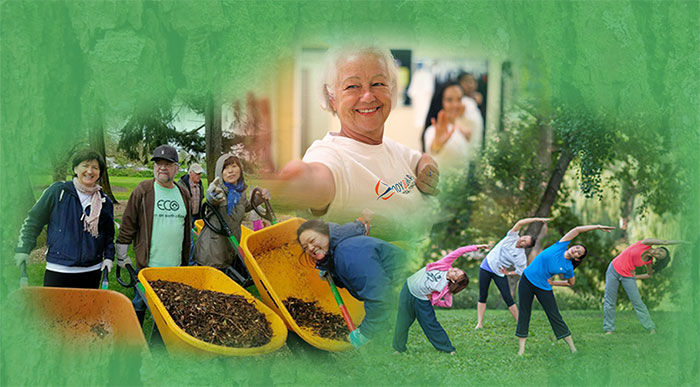Despite having every modern convenience at our disposal and many luxuries our ancestors could only dream of, many of us still struggle with anxiety and depression. You don’t need an official diagnosis to be suffering from these conditions. All you might know is that you’re feeling sad, anxious, and disconnected from others.
In his new book, Connect: How to Find Clarity and Expand Your Consciousness with Pineal Gland Meditation, best-selling author Ilchi Lee explores how re-establishing a connection with yourself can be a great way to deal with anxiety and depression.
Why Are We So Sad and Anxious?
It’s this disconnection many of us experience that can lead to feelings of loneliness and isolation, and those feelings can cause an underlying sadness.
“There are more than two billion Facebook users worldwide with approximately 300 friends per user, but loneliness has surfaced as a greater public health risk than smoking,” Lee wrote. “People may have a lot of social media friends, but they don’t have that many true friends to turn to in real life, to talk to and share their hearts with comfortably.”
It can seem strange to think of yourself as disconnected when all day long you may be in touch with people through texts, emails, and social media. But the majority of these interactions aren’t in-depth—they are superficial. And if you’ve lost your connection to yourself, you have lost your best friend. It can be like trying to find your way out of the wilderness without a compass—you have lost your guide in life so it can be hard to navigate your way.
“Once you understand that disconnection is the underlying cause of your problems, then the solution also becomes clearer. All you have to do is mend your broken connections,” Lee writes. “Recover your connection with your body, your connection with your true self, and your connection with people and the world.”
If disconnection is one of the reasons for your depression and anxiety, the solution might be learning how to feel at home with yourself again, just as you did when you were a child. You can do that by getting a clear sense of who you are and what you want out of life.
Channeling Your Inner Child
Do you remember what it felt like to be a young child? You didn’t care what anyone thought of you—you dressed how you wanted to dress, and you spent your free days doing what you loved. You gave little, if any, thought to how others perceived you. You just followed your bliss wherever it took you.
To get in touch with the younger you, you may want to try meditation. There are many different methods of meditation you can use—the key is to make sure you are quieting your mind of all the thoughts and emotions that swirl around constantly throughout the day. Our minds are busy places, and meditation can be just the break you need to stop that constant internal chatter for a while.
“Meditators try various methods to rid themselves of those thoughts,” Lee wrote. “Some meditate while staring at a point drawn on a wall or at a flickering candle flame, some continuously focus on a koan, some repeat a mantra or specific phrase, and some concentrate entirely on the breath coming and going from their bodies.”
While controlling your breathing and concentrating on your mind can help you focus while meditating, Lee recommends taking that practice to the next level with energy meditation. With this, you feel the energy around you, inside of you, and outside of you. Focus on the energy that permeates our world.
The best way to begin with this exercise is to start small. Concentrate on one area—the hands can be a great place to begin—and try to feel the energy there. As you get better at opening your mind to the energy you feel, you can expand to different areas of the body.
“If you just sit there with your eyes closed, distracting thoughts will arise in your mind as you revert to your thinking brain,” Lee wrote. “But if you focus your awareness on the feeling of energy and keep focusing on expanding that feeling, your tangled thoughts will fall away before you know it. You will be fully immersed in yourself.”
When you’re in your meditative state, things will become much clearer to you. Make sure you pay attention to what your body, mind, and soul are trying to tell you. The clarity and inner peace you’ll gain should help dispel some of the depression and anxiety you feel.
Remember, you’re a work in progress—and the battles you’re fighting right now are only temporary. Everything can, and will, get better if you take a step back and do some inner work.

